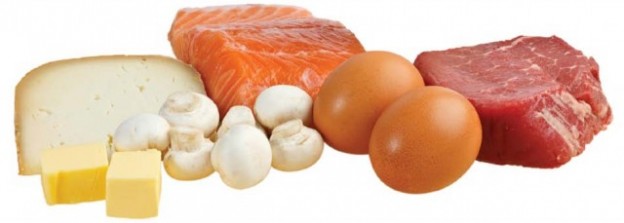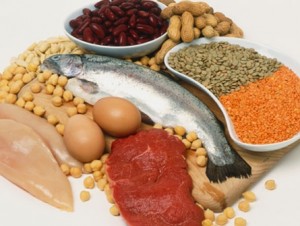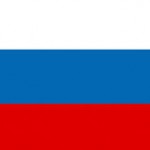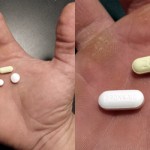By Anthoney J. Andersen – Steroidal.com
There are many nutritional components that make up a healthy diet – components, when combined with regular exercise, can contribute to a long and active life.
However, in this day and age, where there are so many food choices on the market – especially the “fast food options” – it’s hard to stick to a healthy and well-balanced diet regimen.
No matter what diet plan you choose, consuming the right amount of essential vitamins and nutrients should always be a top priority.
Vitamin B for example, is one of the most important vitamins in the human diet, especially because it can be formed in the liver. Like vitamin B, there is a micronutrient that is similar in comparison – and can be formed in the liver as well.
This nutrient is known as choline.
THE BREAKDOWN
According to WebMD, choline is not generally referred to as a vitamin, but rather an essential micronutrient used in treating such ailments like liver disease, chronic hepatitis and cirrhosis. Choline is also used to help treat depression, memory loss, Alzheimer’s disease and certain types of seizures.
Athletes often use choline for bodybuilding and delaying fatigue in endurance sports. Choline is also taken by pregnant women in order to prevent neural tube defects in their babies and is used as a supplement in infant formula.
In 1998, the National Academy of Sciences designated choline as being essential to a healthy diet.
Choline has been revered as beneficial because – though the liver can manufacture a certain amount of choline – most people need to obtain the nutrient from foods, in order to stay healthy.
Many foods contain choline, but the best sources of the micronutrient come from egg yolks, liver and meat. Choline is vital for healthy liver function, as well as brain development.
According to Dr. Andrew Weil, M.D., the body utilizes choline in a variety of ways, including aiding in nerve signaling, maintenance of cell membranes, transporting triglycerides from the liver and as a component of nervous system tissues in early brain development.
Choline is also a precursor of acetylcholine – a neurotransmitter that is vital to nerve and muscle function – and a constituent of lecithin, which is critical to normal liver metabolism.
Experts insist that the importance of acetylcholine cannot be overstated.
“The part of your nervous system that runs your heart and keeps your intestines moving along, runs largely on acetylcholine,” Weil said. “Similarly, any muscle you move requires a signal of acetylcholine to tell it to contract.”
SUPPLEMENTS VS. FOODS
Like with most popular nutrients on the market, you will find a plethora of choline supplements in most health food/vitamin stores. However, choline is best absorbed if obtained straight from natural food sources.
The choline that is squeezed into pills or capsules, is usually in a form derived from soy lecithin – the often questionable byproduct of the soy industry that is also used as an emulsifier (any food additive, such as lecithin, that prevents separation of food sauces or other processed foods) in commercial baked goods and chocolate.
CHOLINE RICH FOODS
According to the Food and Nutrition Board of the Institute of Medicine of the National Academies, it’s recommended that men consume 550 milligrams (mg) per day, and women consume 425 mg daily.
The following is a breakdown from the U.S. Food and Drug Administration’s “Reference Values” as the world’s healthiest foods ranked as quality sources of choline:
| Food | Serving Size | Calories | Amount(mg) | DV(%) | Nutrient Density | World’s Healthiest Food Rating |
| Eggs | 1 each | 77.5 | 146.90 | 35 | 8.0 | Excellent |
| Shrimp | 4 oz | 134.9 | 153.54 | 36 | 4.8 | Very good |
| Scallops | 4 oz | 125.9 | 125.53 | 30 | 4.2 | Very good |
| Broccoli | 1 cup | 54.6 | 62.56 | 15 | 4.9 | Very good |
| Spinach | 1 cup | 41.4 | 35.46 | 8 | 3.6 | Very good |
| Chicken | 4 oz | 187.1 | 96.73 | 23 | 2.2 | Good |
| Turkey | 4 oz | 166.7 | 94.57 | 22 | 2.4 | Good |
It’s important to note that if you’re a woman who is pregnant, taking extra precaution to make sure you consume enough choline each day, is extremely vital to your baby’s well-being.
Although estrogen levels rise during pregnancy – which may cause an increased de novo synthesis (synthesis of complex molecules from simple molecules such a sugars and amino acids) – dietary intake of choline is still critical.
According to the National Center for Biotechnology Information (NCBI), research has discovered that women who consume less than 300 mg of choline per day during pregnancy, are more likely to increase the risk of neural tube defects, as opposed to women who consume more than 500 mg per day.
The following is the recommended “Adequate Intake (AI)” levels for choline:
| Population | Adequate Intake (AI) of Choline |
| Infants: (0-6 months)(7-12 months) | 125 mg150 mg |
| Children: (1-3 years)(4-8 years)
(9-13 years) |
200mg250mg
375 mg |
| Adolescents: (14-18 years) | 400 mg (Females)550 mg (Males) |
| Adults: (19 and older) | 425 mg (Females)550 mg (Males) |
| Pregnant women | 450 mg |
| Breastfeeding women | 550 mg |
FOOD FOR THOUGHT
As people are living longer these days, maintaining proper health has become increasingly more important, than ever before. Living a healthy lifestyle is not just about exercising or diet – it’s about both.
Yes, it’s true that you can focus just on diet in order to keep your body’s vitals (blood pressure, cholesterol, heart health, etc.) in sound condition, but when you combine the two, you








